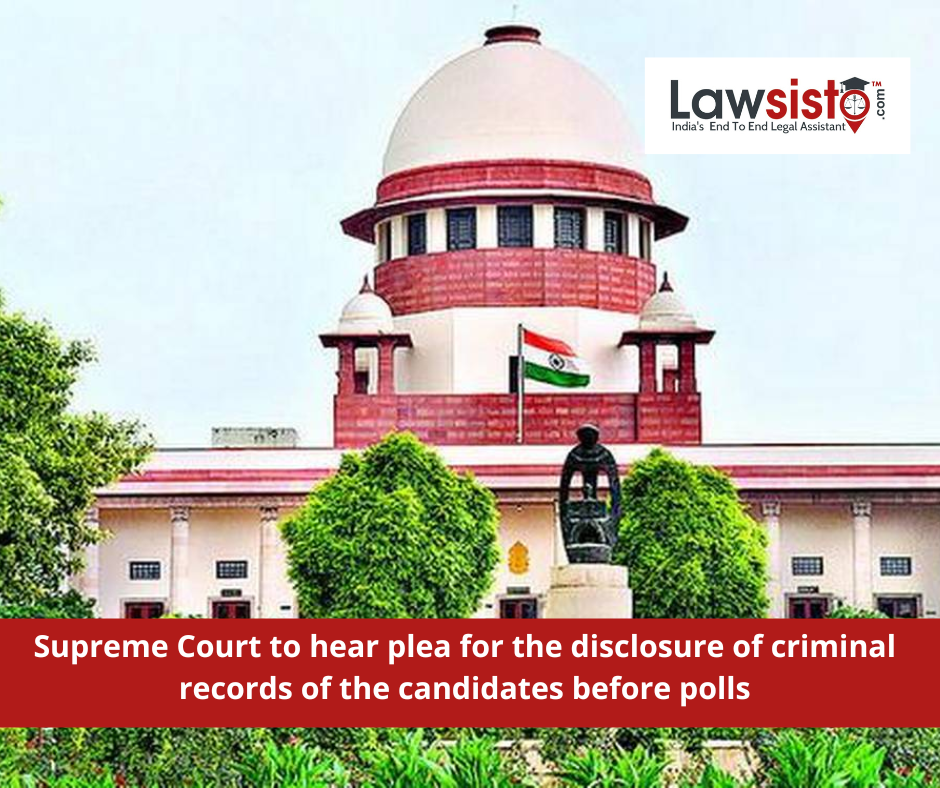Latest News
Supreme Court to hear plea for the disclosure of criminal records of the candidates before polls.

On 18th January, the Supreme Court said it would consider scheduling a hearing on a petition asking the Election Commission to order political parties to make information on candidates' criminal charges, as well as the reasons for their selection, available on their websites. Lawyer Ashwini Upadhyay, who filed the PIL in his own name, urged a bench consisting of Chief Justice of India N V Ramana, Justices A S Bopanna and Hima Kohli to list the case expeditiously in light of the ongoing election process.
Aside from seeking the disclosure of candidates' criminal histories on political party websites, the PIL also asks the poll panel to ensure that every politician publishes the details in electronic, print, and social media, and to file a contempt case against the party's president if such directions are not followed.
The petition was filed after the Samajwadi Party, a registered and recognised political party, fielded alleged gangster Nahid Hasan for the Kairana assembly in Uttar Pradesh, but failed to publish his criminal records in electronic, print, or social media, nor the reason for his selection within 48 hours, as required by the Supreme Court.
The appeal also asks the Election Commission to de-register the political party for violating the Supreme Court's orders, according to the petition, which was submitted by counsel Ashwani Kumar Dubey. The consequences of allowing criminals to run for office and become legislators are extremely harmful to democracy and secularism because, during the electoral process, they not only use massive amounts of illegal money to sway the outcome, but they also intimidate voters and rival candidates, according to the plea.
Political parties were required to divulge the whole criminal past of its candidates for Assembly and Lok Sabha elections, as well as the reasons that prompted them to field suspected criminals over respectable people, in Supreme Court judgements issued in 2018 and 2020.
The plea said, “Thereafter, in our weak rule-of-law, once they gain entry to the governance as legislators, they interfere with, and influence, the functioning of government machinery in favour of themselves and their organisation by bribing government officials and, if that fails, by utilising their connections with ministers to threaten transfer and disciplinary processes. Some become ministers, which makes the situation worse,”
The information should be published in a local and national newspaper, as well as on the social media accounts of the parties. It must be publicised within 48 hours of the candidates' selection or fewer than two weeks before the first deadline for filing nominations, whichever comes first. The nature of a candidate's criminal antecedents should be described, including the nature of the offences, accusations brought against him, the court involved, case number, and so on. The lawyers also contended that long delays in case resolution and low conviction rates are evidence of their power.



































































































